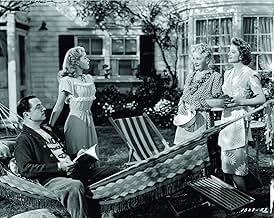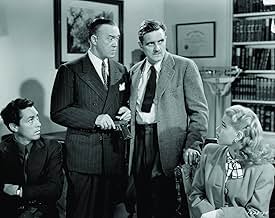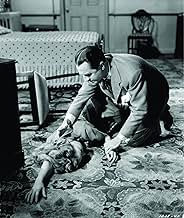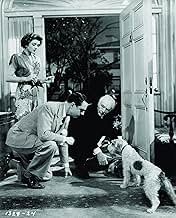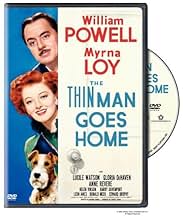It's 1945, the trains are packed with people, Asta doesn't remain hidden under Nora's fur coat so Nick, Nora and Asta end up in the baggage car as they travel to Nick's home town. And Nick is drinking only cider - his father never approved of drink. Thus begins, "The Thin Man Goes Home," made as the war was ending and a lot of people whose lives had changed were thinking about going home.
Nick, it turns out, has an uneasy relationship with his doctor dad because he himself never became a doctor. When the inevitable mystery arises around a murder, Nora wants Nick to solve it to impress his dad.
The fact is, the scripts of "The Thin Man" series never mattered. It was always the acting and interaction of William Powell and Myrna Loy, and here, as usual, they're great - loving, flippant, and funny. Since Nick is always falling on the floor or getting hit on the head, it's hard for anyone to believe he's sober. At a charity dance, in order to do some investigating, he gives his dance tickets to a sailor and Nora becomes his partner. The dance scene is hilarious as the sailor tosses Nora all over the place and swings her around with the kind of maneuvers you see in pair figure skating.
The war is still on so the story involves espionage. A very young Gloria de Haven does nicely as a self-consciously over-dramatic young woman; Harry Davenport and Lucile Watson are great as Nick's parents; and the later blacklisted Anne Revere does a fine job as Crazy Mary.
William Powell could read the phone book with class and humor; Loy looks beautiful and their teamwork has never been better. Highly recommended.



